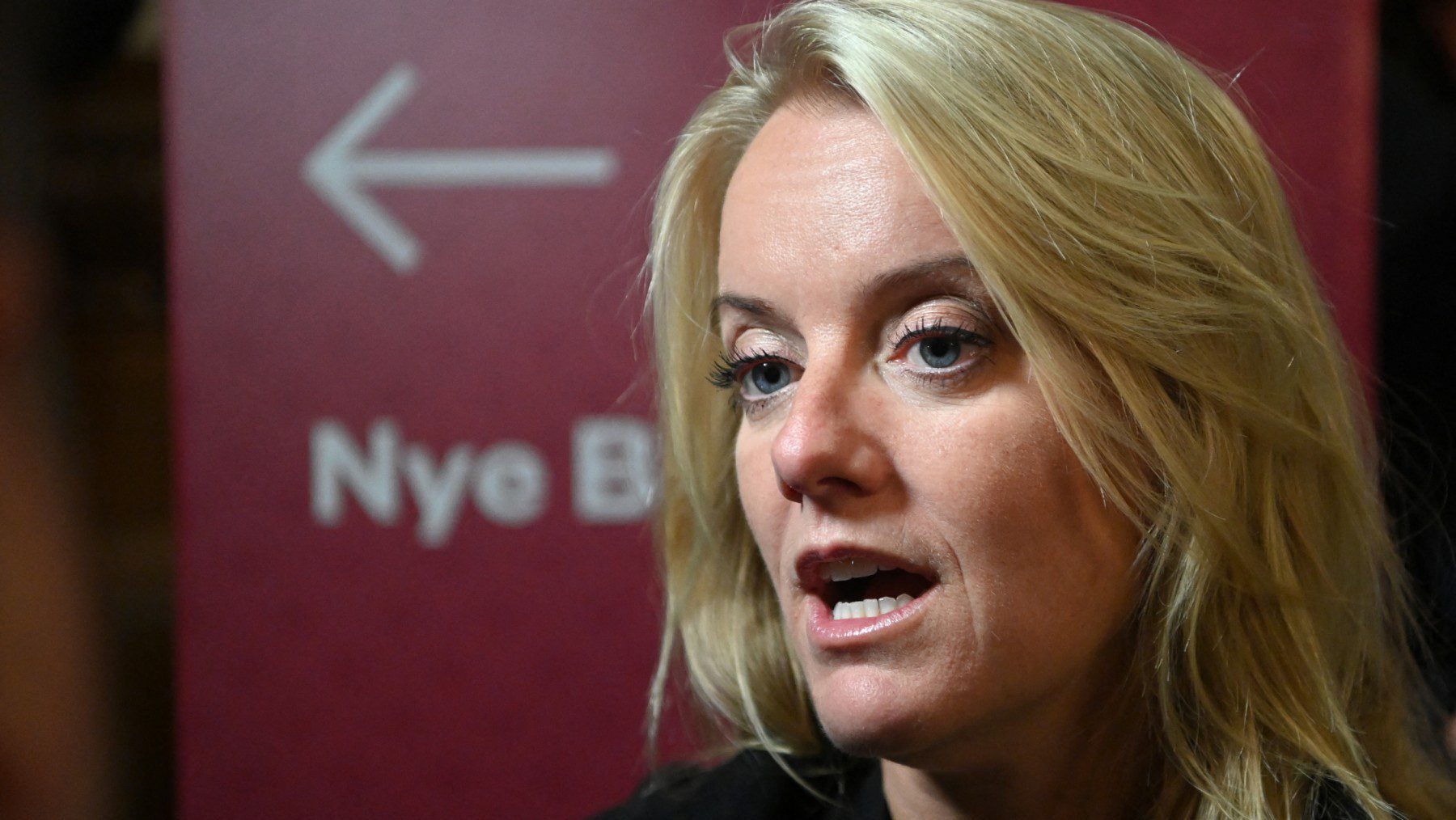
New Right (Nye Borgerlige) leader Pernille Vermund.
Photo: AFP / Jonathan Nackstrand
Shocking even some of her own party colleagues, New Right (Nye Borgerlige, NB) leader Pernille Vermund announced the dissolution of her party on Wednesday, January 10th, saying that the move was necessary to consolidate Denmark’s highly fragmented right-wing political scene.
The New Right was founded on national-conservative, anti-migration, Eurosceptic, and libertarian principles in 2015, and has been a parliamentary force since 2019. The party gained 3.7% in the 2022 general elections, translating to 6 parliamentary seats in the 179-seat parliament, the Folketing.
Following the election, however, a series of internal disputes resulted in three of the New Right MPs leaving the party, with two of them defecting to the country’s main populist faction, the Danish People’s Party (DF), a member of the Identity and Democracy Group in the European Parliament. One of the remaining three representatives has been on long-term sick leave since April of last year, reducing the party to two active MPs, including Vermund herself.
Nonetheless, the New Right leader stressed that she decided to dissolve the party not because of the struggles it has been experiencing but because the fragmented Danish conservatism needs consolidation if it wants to challenge the ruling Left.
“When we founded Nye Borgerlige eight years ago, there were four right-wing parties. Today there are seven. And with two active seats in parliament, we risk not only working ourselves into the ground but also being the ones who could [prevent] a right-wing majority and thereby a right-wing prime minister,” Vermund argued in her announcement, adding that
If we are to revive a right-wing Denmark, we need to gather all the good forces—but in slightly fewer right-wing parties.
The announcement came as a surprise even to some in Vermund’s own party. Martin Henriksen, the New Right’s leading candidate for the upcoming EU elections was also caught unawares. Henriksen said he would have liked to be informed and many others were not aware either but called the move “very logical” nevertheless.
According to Danish People’s Party MP Mikkel Bjørn Sørensen—one of New Right’s initial MPs who changed party after the last elections—the dissolution of NB was not only inevitable because of the saturation of right-wing parties in the Danish parliament, but more specifically because of his new party, the DF, successfully establishing itself as the main anti-globalist, anti-migration populist force.
“Since the founding of the New Right (Nye Borgerlige), the Danish People’s Party has gained a new party leader [Morten Messerschmidt] who represents the honest and pure conservative stance much more, which the New Right and Pernille Vermund initially sought when the party was founded,” Bjørn told The European Conservative.
“Therefore, there is no longer a real need for the New Right,” the MP added.
Vermund also made it clear that she does not intend to leave politics but is considering joining another party and recommended the same to her colleagues in parliament and local councils.
It remains to be seen which party Vermund (and the others) would join in the end. Some theorized that she would likely try to re-enter the center-right Conservative People’s Party (DKF)—which she left 8 years ago to found the NB—but Bjørn thinks she can also end up in the Liberal Alliance, as she has been increasingly moving toward the center in recent years.
Apart from the People’s Party, another rising star on the Danish conservative scene is the Denmark Democrats (whose name choice was undoubtedly influenced by the successful Sweden Democrats) which was founded just a few months before the 2022 general elections but managed to gain 8.1% and 14 seats nonetheless.
While DD also takes a strong stance against illegal migration and is considered to be part of the populist Right, Mikkel Bjørn Sørensen called it a “very centrist and government-oriented party,” that will most likely join the EPP after the EU election in June.
